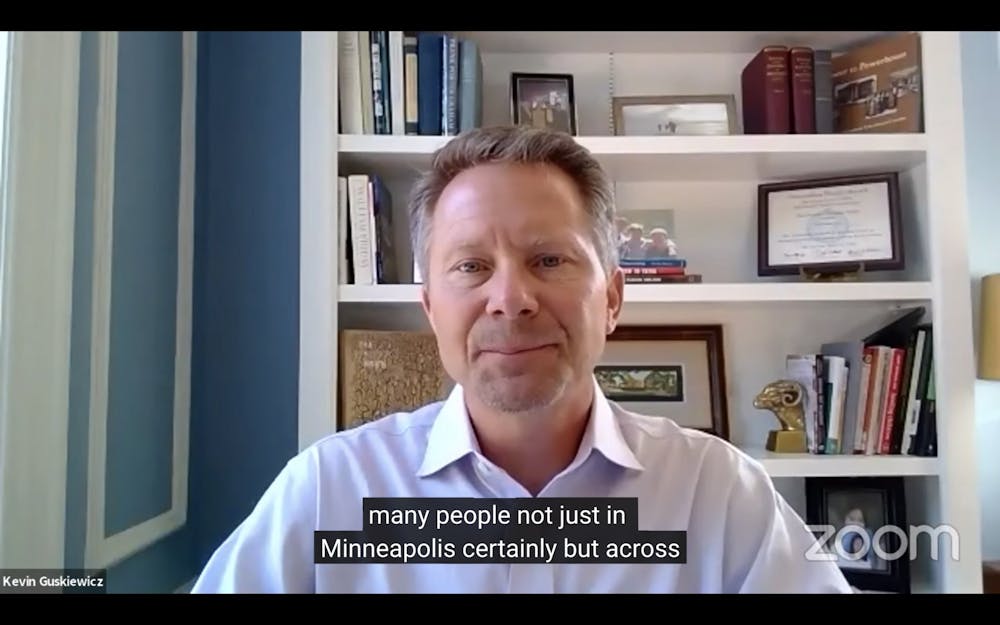“There’s been some egregious acts of violence and death that’s happened, and we have to acknowledge that,” said DeVetta Holman-Copeland, co-chairperson of the commission and resiliency and student support programs coordinator for Student Wellness, said during the meeting. “As a commission, I want us to be able to look at how we’re going to move forward in light of the students coming back, some of the things we might want to do and how we might engage students and affirm students.”
Recent UNC Law School graduate Maya Weinstein emphasized the commission’s responsibility to vocalize support for students in the campus community amid recent acts of racial injustice and violence. Thursday was Weinstein's last meeting on the commission.
The commission also discussed how to continue fostering a safe community when students return to campus in the fall.
“Our response to the COVID pandemic is going to be fundamental,” said commission co-chairperson and political science professor Frank Baumgartner. “That’s going to drive people’s feelings of comfort, safety and whether they’re comfortable with the policies that are put in place.”
Jim Herrington, a professor in the Gillings School of Global Public Health, brought up the negligence of mental health as an aspect of public health amidst current events. He suggested asking experts to advise the commission on how to move forward regarding the mental health of the campus community.
Baumgartner proposed a reorganization of subcommittees, stating that although the primary motivation for the commission’s creation had to do with policing of protests, it has become evident that other concerns, including sexual violence and the COVID-19 pandemic, should be addressed by the commission.
“I think keeping everything in parallel tracks is the only way that we can make progress,” Baumgartner said. “We don’t want to downplay the issue of police oversight and the safety and trust of our anti-racist protestors. We don’t want to downplay any of these aspects and we certainly can’t ignore the issue of social distancing and participating in the conversation about COVID and our response to the pandemic — so it’s a big job.”
The commission also discussed how to enforce the use of face masks in the fall.
“We don’t want the mask issue to be about law enforcement,” said UNC Police Chief David Perry. “Subconsciously, I think people will automatically think to call the police if this person is not compliant.”
The University plans to provide masks to all students who need them this fall.
“We’ve had lots of conversations with the school, people in the school of public health and the med school, and looking at being able to identify and even test masks that we might be supplying for our population, so that we can, with a degree of confidence, look at quality,” said Dean of Students Desirée Rieckenberg.
Eric Muller, a professor in the law school, initiated a conversation about how to protect UNC employees who work to keep University facilities clean and will be most at risk.
To get the day's news and headlines in your inbox each morning, sign up for our email newsletters.
Catherine Brennan, executive director of UNC’s Environment, Health and Safety Department, said that this has already begun to be addressed with the housekeeping staff that has been on campus near the beginning of the crisis. She said the department is working to create workplace assessments and determine what the proper training and PPE usage will be.
The commission also discussed residence halls and social distancing in the upcoming semester. Rieckenberg said that students living within the same room in residence halls will be considered a family unit.
Further conversations will be taking place regarding expectations for students living on campus, which will be finalized and communicated to students as they receive their finalized housing assignment.
What’s next?
The final two meetings of the summer will be July 1 and Aug. 5, from 9:00 a.m. to 11:00 am.



